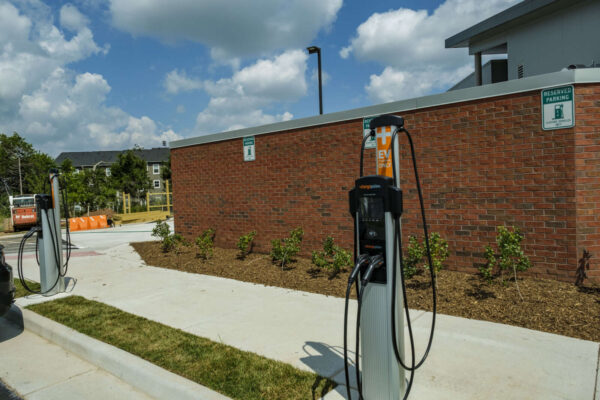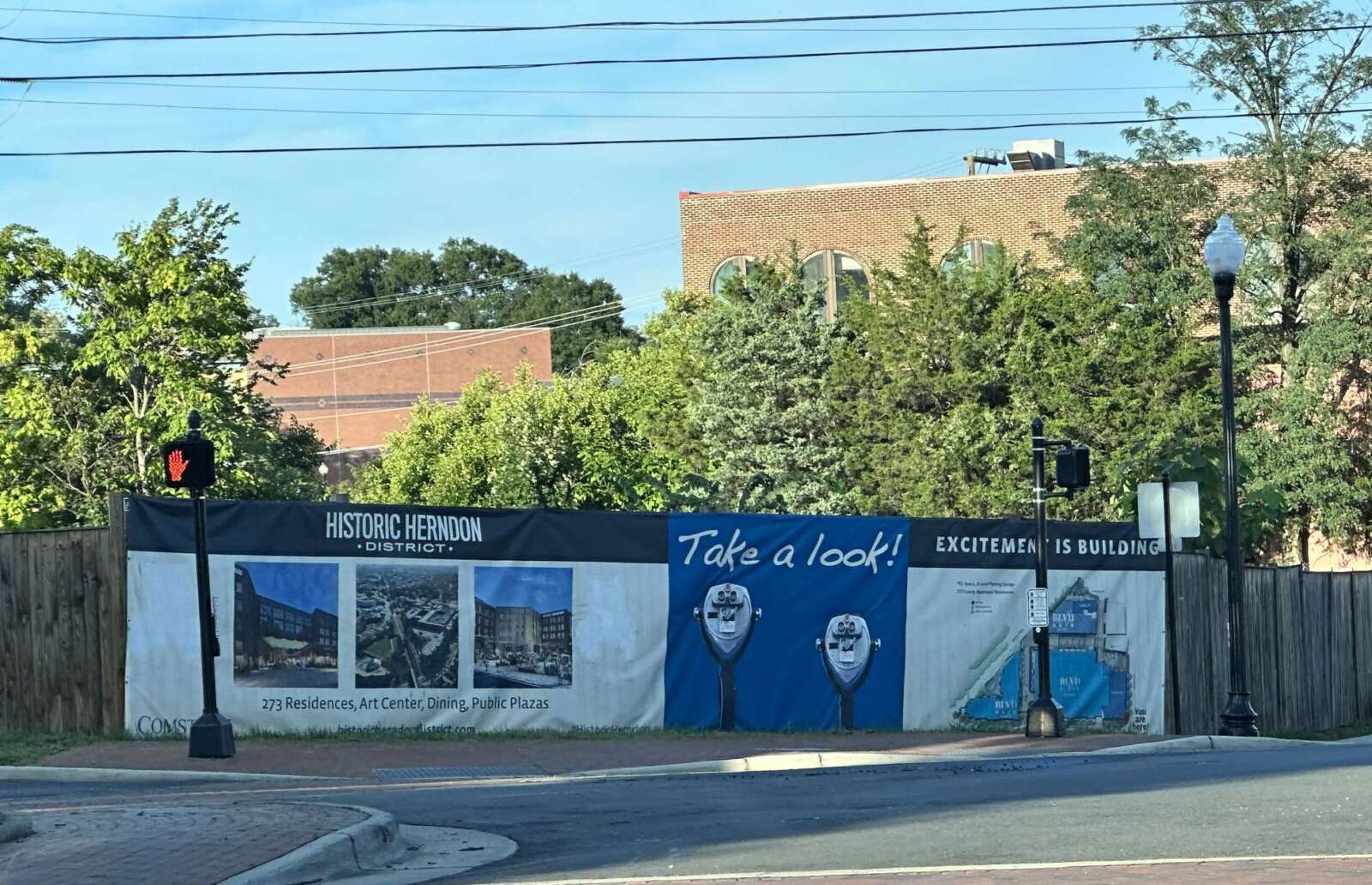
Reston Association is charging up to potentially take part in Fairfax County pilot to get more homeowners’ associations (HOAs) on board with improving access to electric vehicle chargers.
The pilot program, Charge Up Fairfax, would facilitate EV charging by residents in multi-family housing, especially HOAs and condominium associations, by circumventing technical and financial challenges linked to installing stations.
“This program aims to assist HOAs with the installation of publicly available shared charging stations,” said Cameron Adams, RA’s director of covenants administration, in a recent Reston Today video.
The program would also provide support to multi-family communities to install charging stations in common areas. The county would work with HOAs and other groups to install stations in publicly accessible locations that they own.
In the first phase of the program, the county will work with HOAs to identify possible locations and survey the community. This exploration phase will be followed by reviewing by data gathering and community engagement, after which a contractor and equipment will be selected.
Grants would be structured to reimburse communities up to $5,000 for the installation and upkeep of the charging stations. Some communities may be eligible for up to $10,000.
RA expects to hear back from the county on how it can apply to take part in the pilot in the spring, according to Adams. Installation could begin in July — a move that is entirely dependent on funding.
The county’s Office of Environmental and Energy Coordination is seeking $830,000 in grant funding from the U.S. Department of Energy to move forward with the project. The grant application was approved by the Fairfax County Board of Supervisors at a Jan. 24 meeting.
At a Nov. 9 meeting with the county last year, RA members provided feedback on their EV needs and discussed the program. RA’s participation in the program has been proposed since at least late September, when county staff discussed the pilot program with the Fairfax County Board of Supervisors.
The program follows the passage of state legislation that establishes the right of electric vehicle owners to access charging stations. The bill, passed in 2020, bars home and condominium owners from prohibiting the installation of stations under certain conditions.
Still, many challenges remain, including the cost-inhibitive nature of installing and maintaining stations, as well as stringent local regulations on their installation and use.
RA was among the first HOAs in the country to establish design guidelines for electric vehicle charging stations, following a 10-month process in 2021, according to Adams.





